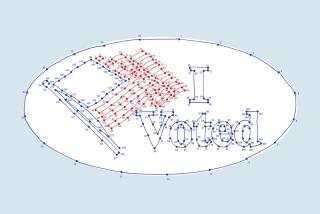Everybody Wants to Get Into the Act
- Share via
From surfboards to semiconductors, Californians are used to being on the cutting edge--except when it comes to presidential politics. Because our primary has always been one of the latest--on the first Tuesday in June--we’ve had to sit on the sidelines as a presidential candidate is selected by the rest of the country. So it should be good news that we’re moving our primary to the first Tuesday in March, only days after Iowa and New Hampshire kick off the primary season.
The trouble is, a lot of other states have the same idea, and that’s compressing the selection process into such a short time that it will be even harder for voters to learn much about the candidates and their agendas. And that’s not good.
New York, New Jersey and Massachusetts, as well as most of the other New England states, now are set for the same day as California. Several other states are considering joining us as well.
It gets worse. Florida, Texas and most of the other Southern states have scheduled their primaries for the following Tuesday, meaning that roughly three-quarters of the nation’s voters will cast their ballots over an eight-day period in spring, 2000. And then spend the next eight months wondering if they made the right choice.
As a result of this compacted schedule, the candidates will be forced to try to cover an absurd amount of geography in an impossibly short time. No state, not even California, will have a chance to learn anything of the candidates in one weeklong advertising blitz and a couple of hurried airport news conferences as they bounce back and forth across the country.
One practical effect of the new schedule is to reinforce the critical importance of early fund-raising. Buying advertising time in our state is tremendously expensive, but add in the cost of television commercials in more than a dozen other large states over the same time period, and the wealthiest candidates begin the campaign with even a larger advantage than they currently possess.
Not that money in itself is determinative. Just ask Texas Sen. Phil Gramm, who raised more than $20 million for the 1996 campaign but still couldn’t break through into the top tier in Iowa and New Hampshire. All that money didn’t do Gramm any good, not without the momentum an early victory would have provided.
The energy and attention that an early winner picks up coming out of New Hampshire have always been important. Now, given the constricted calendar, they’ll be absolute necessities. Within days, candidates will have to ride that momentum to a do-or-die contest in California and elsewhere.
Because there will be so little time after the New Hampshire primary for candidates to travel through the next rounds of primary states, and because advertising budgets will be stretched so thin over so many media markets, news coverage of the race will grow in importance. Those candidates who come out of the early states with a head of steam will attract the overwhelming majority of the attention. But a candidate who fails to secure a top-two finish in New Hampshire might as well pack it in, because the only way he’s going to get on the nightly news is by storming the newsroom with a repeating rifle.
One solution to the problem is to implement a national primary calendar that treats all states equally through a system of regional primaries. Under this plan, regional clusters of states would hold their primaries one month apart. Candidates would have four weeks to travel through a particular geographic area of the country, allowing the voters in those states to become more familiar with them before voting. Iowa and New Hampshire would retain their traditional places as the first states on the calendar, but the other states would rotate every election cycle so that each region’s voters could participate early in the process at some point.
The only problem with such a logical solution is that it will never happen. Each state, except Iowa and New Hampshire, would have to forfeit some advantage in order to help achieve a common good. And in politics, such self-sacrifice is an extraordinarily rare commodity.
More to Read
Get the L.A. Times Politics newsletter
Deeply reported insights into legislation, politics and policy from Sacramento, Washington and beyond. In your inbox twice per week.
You may occasionally receive promotional content from the Los Angeles Times.










